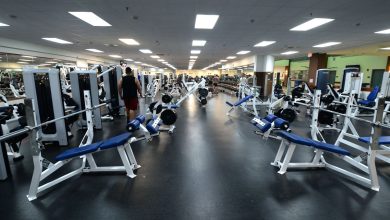
The term screening refers to the administration of a test for the detection of any disease in a person who has no symptoms of it. The investigations performed on people who have symptoms are diagnostic investigations and not screening.
What is Breast Cancer Screening?
Breast cancer screening is the process of detecting the presence of cancerous tissues in healthy women’s breasts. It is performed to screen women’s breasts for cancer before any signs or symptoms of the disease appear. This screening test should be administered to all women in order to detect breast cancer in its early stages.
When women are informed about the benefits and risks of screening, and whether it is appropriate for them, they make informed and shared decisions.
Although this screening cannot prevent breast cancer, it can aid in the early detection of the disease when it is easier to treat. It is beneficial to speak with your doctor about which screening tests are appropriate for you and how they will benefit you.
Many homecare services offer screening services in the home. The method is completely safe, comfortable for all women, and accurate. This can aid in the early detection of breast cancer.
Who Should be Screened for Breast Cancer?
- When breast cancer runs in your family: Breast cancer family history is associated with an increased risk of developing the disease in both men and women. This risk is related to the number of breast cancer cases in your family, your relationship with them, the age at which they developed breast cancer, and other factors. The greatest risk is if your “first-degree female relatives” have breast cancer. As the number of family members affected grows, so does the risk.
- Breast cancer risk is also boosted when a pregnancy is not carried out to full term.
- If you’ve been told you have a gene abnormality, such as the BRCA1 or BRCA2 gene, which increases your risk of breast cancer. These two genes are the most significant among the many others.
When Should One Get a Breast Cancer Screening?
The ideal time to get your first mammogram is in your mid-to-late-30s. After that, you should get one every year beginning at age 40. A relatively recent UK study found that starting at age 40, mammograms should be performed annually.
For any individual with breast mass in their 20s, a diagnostic breast ultrasound should be a first step, done at a certified breast screening center by a breast radiologist (mammographer).
A diagnostic mammogram ought to be included for women over 30 as well. Even though this is not a screening mammogram, the area in question is magnified in at least four different views. Even if you recently had a screening mammogram, you should still do this. Mammograms used for screening have two views and miss 10-15% of breast cancers.
What Tests Should you Undergo for Breast Cancer Screening?
- X-ray mammography- The most crucial test for breast cancer screening is X-ray mammography. Women who are not at high risk can start this test at the age of 50. In high-risk women, it may begin at a younger age, such as 40 or 35, or occasionally even younger.
- MR Mammography- Magnetic resonance mammography, also known as an MRI of the breast, is performed on women who are younger in age (30 to 40 years). MR mammography may be preferred for women with abnormal genes or with a very strong family history.
- Ultrasound of the breast: Breast ultrasound, also known as Sono mammography, is frequently used in addition to x-ray mammography. Younger women who are not at very high risk can use it in conjunction. It provides extra details that x-ray mammography does not.
Conclusion:
Screening women for breast cancer has long been practiced in Western countries such as the United States, Europe, and others. Women between the ages of 50 and 70 are offered screening by x-ray mammography of both breasts at 18-to-24-month intervals. If there is an abnormality in the screening mammography, the women are called back for further evaluation. Further evaluation may include a more detailed mammography, ultrasound, MRI of the breast, a biopsy from suspected areas, and additional treatment as needed. One in every ten women recalled for further evaluation may be diagnosed with and treated for breast cancer. Homecare services in Chennai provide home-based screening solutions for women who are uncomfortable about getting a breast screening.




